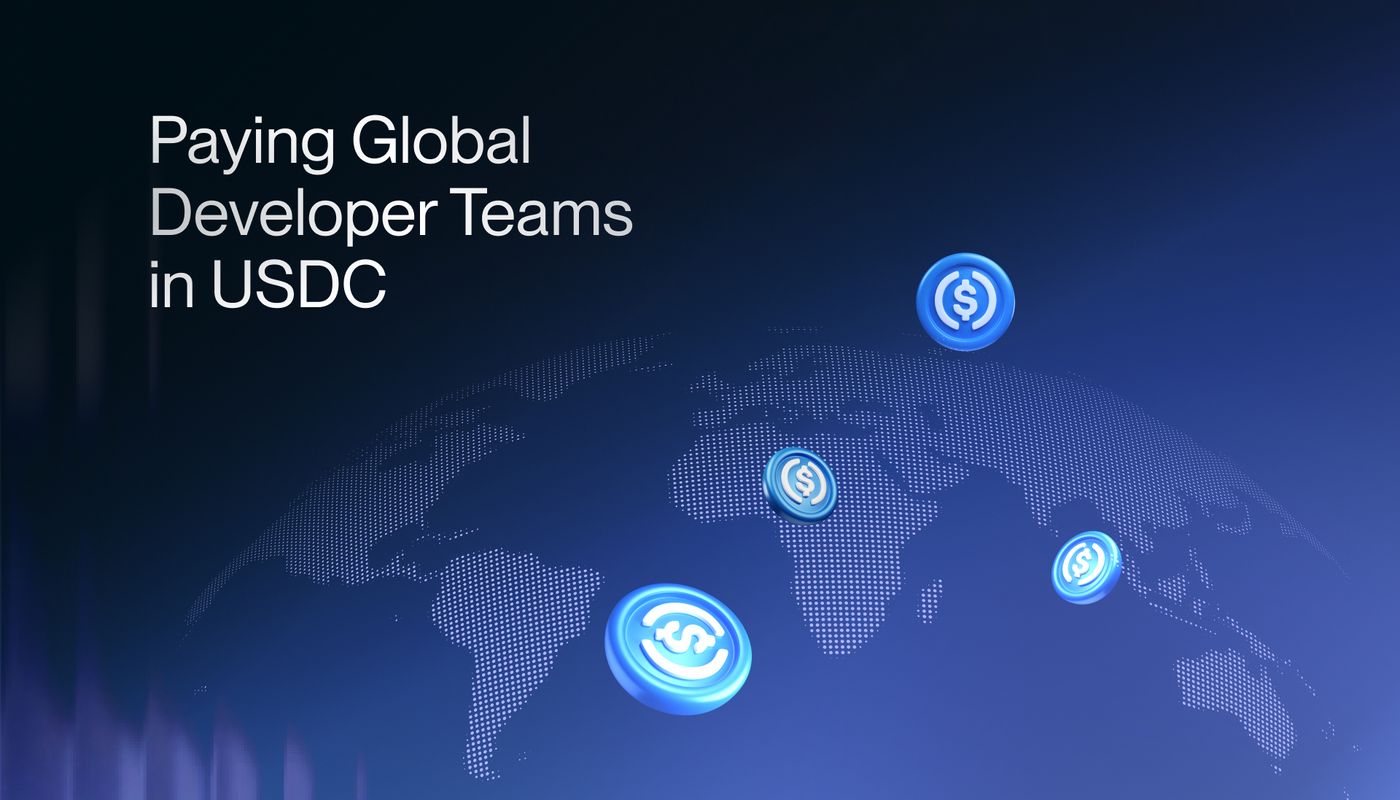The Guide to Paying Global Developer Teams in USDC

How to Pay Your Global Dev Team in USDC (When Your Bank Says “Absolutely Not”)
A compliance-first guide for tech companies who are done with workarounds.
If you’re running a remote-first startup, this problem hits fast.
You’ve scaled the team. You’ve got developers in Serbia, product in Argentina, QA in the Philippines. Everyone prefers to get paid in stablecoins. It’s faster. Cheaper. Borderless.
You say yes.
Then your bank says no.
Suddenly, your well-oiled global ops engine grinds to a halt—because your finance stack was built for W-2s and wire transfers, not high-performance distributed teams.
The Real Friction Isn’t Crypto. It’s Compliance.
This isn’t a tech problem. It’s a compliance and banking problem.
You’re not trying to buy meme coins. You’re trying to pay legitimate contributors, contractors, and vendors… in a stable digital dollar.
But the moment the word crypto hits your invoice, three things happen:
- Your bank freezes the transfer
- Your CFO panics about regulatory exposure
- You start googling “how to pay people in USDC without getting flagged”
This is the unspoken reality of remote ops in 2025:
The future of work is global. The future of payroll is crypto. But the infrastructure is still stuck in 2011.
Why Most Solutions Fail
You’ve probably already tried:
- Sending from a personal wallet (and praying no one asks questions)
- Using CEXs for off-book USDC payouts
- Hiring a random payments aggregator from Twitter
These might work—until they don’t.
And when they break, they break hard:
- No audit trail
- No proof-of-payment
- No clear reporting or expense recognition
- No compliance visibility for regulators or investors
The longer you patch things, the messier your back-office gets—and the riskier your business becomes.
What a Real Solution Looks Like
Paying international teams in USDC isn’t just about clicking “Send.”
You need a compliant, repeatable system that checks four boxes:
- Legal ClarityWhat entity is paying? Where is it domiciled? Are the contracts in place?
- Regulated InfrastructureYou can’t run payroll through a MetaMask wallet. You need a licensed EMI, a compliant OTC partner, or a custodial crypto treasury solution that’s built for business flows.
- Clear DocumentationYou need payment records, contributor invoices, and stablecoin transaction logs mapped back to your books—so nothing looks shady come tax or audit season.
- Speed + ScaleYou should be able to pay 1 or 100 contributors across 10 countries with a single push. No hacks. No delays. Just a fast, global crypto-native treasury function that works.
Who We Work With
We’ve helped:
- Web3 infrastructure teams pay 60+ global engineers in stablecoins monthly
- Remote SaaS startups shift 80% of their ops expenses to USDC without touching an exchange
- VCs and holding companies set up clean off-chain payroll for crypto-funded subsidiaries
Every case is different. But the pattern is the same:
You hit the same wall. We build the system that gets you through it.
If Your Bank Said No—You’re Probably Doing It Right
The fact that your bank rejected this flow means you’re ahead of the curve.
Now you just need infrastructure that matches the way you actually operate.
We build compliance-first USDC payment systems for remote teams.
No grey areas. No duct tape. Just fast, legal, scalable execution.
If you’re sitting on stablecoins and a globally distributed team—you shouldn’t be wasting another week on workarounds.
Reach out. We’ll show you how the smart teams are doing it.


-360x240.jpg?w=3840&q=75)
